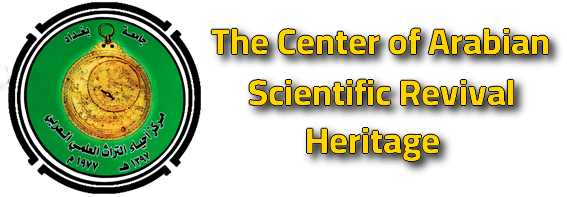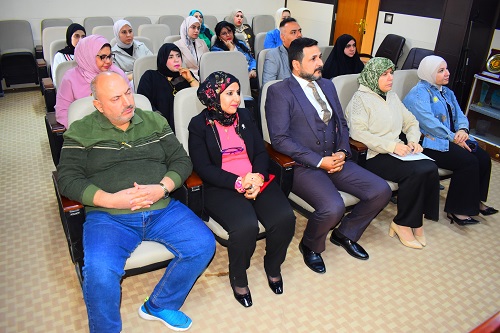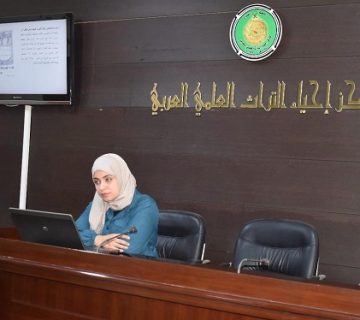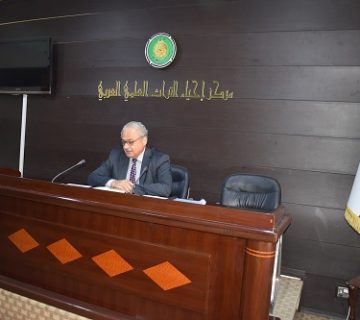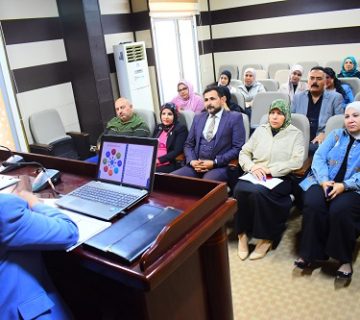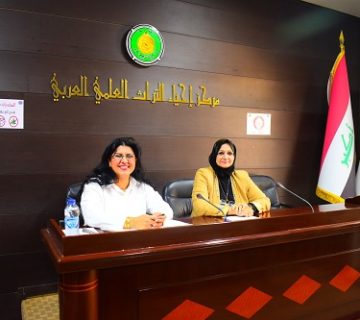
Seminar
The Center for the Revival of Arab Scientific Heritage Organizes a Seminar
The Center for the Revival of Arab Scientific Heritage at the University of Baghdad organized a seminar on Monday, November 24, 2025, entitled “Repetition in the Holy Qur’an.” The event was held in Professor Nabeela Abdul Muneem Dawood Hall, with the attendance of several faculty members from the Center. The lecture was presented by Assistant instructor Hind Amer Fadel, a faculty member at the Center, who discussed repetition in the Qur’an as a prominent rhetorical device based on reiterating words or meanings to achieve various purposes. She explained that repetition is not a mere restatement without value; rather, it is used to affirm meaning and firmly embed it in the mind, especially in doctrinal matters that require clarification and emphasis, such as monotheism, resurrection, and prophethood. She added that repetition also helps attract the listener’s attention, appearing in different forms that suit the context and theme of each Surah. Repetition is evident in Qur’anic narratives, where events are retold in varying styles that introduce new meanings and highlight additional aspects of the story. It is also employed to enhance the Qur’anic rhythm and verbal harmony, which give the text its unique beauty and profound impact.
Thus, repetition is considered an artistic and rhetorical element that deepens understanding and highlights the miraculous nature of the Holy Qur’an.
